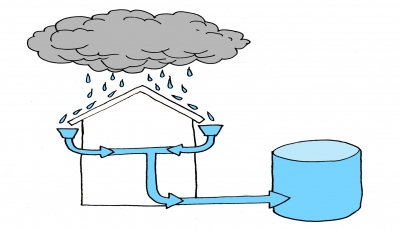Checking Out the Importance of Reclaim Waste in Sustainable Waste Monitoring Campaigns
In the world of lasting waste management, the principle of recovering waste emerges as a crucial part that demands focus and consideration. By taking a look at the elaborate interplay between waste recovery and sustainable waste monitoring initiatives, we start to unwind a story that prolongs beyond traditional waste disposal techniques.
Importance of Reclaiming Waste
Why is recovering waste essential in lasting waste monitoring methods? Redeeming waste plays a crucial function in sustainable waste management by decreasing the quantity of waste sent to landfills, saving natural deposits, and lessening ecological effect. By reclaiming waste products with upcycling, recycling, or repurposing, valuable resources can be recuperated and reintroduced right into the production cycle, decreasing the requirement for virgin products. This not only lowers the pressure on natural deposits however additionally assists in minimizing energy intake and greenhouse gas emissions related to the extraction and handling of basic materials.
Furthermore, redeeming waste promotes a circular economic situation where products are reused and recycled continuously, advertising a more reliable and sustainable use of resources. It additionally contributes to the creation of green jobs and financial development in the recycling and waste management market. By incorporating waste reclamation techniques into waste administration communities, strategies and businesses can relocate towards a more sustainable future, where waste is seen not as a problem but as a valuable resource.
Benefits for the Environment
In the world of lasting waste administration, the technique of reclaiming waste not only reduces and conserves natural sources waste sent out to garbage dumps but additionally produces considerable benefits for the setting. By recovering waste products, such as metals, glass, plastics, and natural matter, the ecological influence of resource extraction and production is lessened (Liquid waste removal). This brings about reduced power consumption, lowered greenhouse gas exhausts, and lower degrees of air and water contamination related to removing resources
In addition, recovering waste aids in the conservation of biodiversity and natural environments. It reduces the demand for land fill space, thus lessening land deterioration and environment devastation. Additionally, the process of reclaiming waste often entails recycling and repurposing materials, which in turn reduces the need for new items and the linked energy and resources required for their production.
Payment to Round Economic Situation
Playing an essential function in promoting sustainability and resource performance, redeeming waste makes a considerable payment to the round economic situation. By reestablishing discarded products back into the manufacturing cycle, redeeming waste reduces the requirement for virgin sources, thereby lowering the general environmental influence of source removal and intake. This process lines up with the principles of the round economic situation, which emphasizes making best use of the value and energy of resources with closed-loop systems.
Additionally, redeeming waste promotes innovation and encourages the advancement of new technologies and processes for recycling and upcycling materials. This not only reduces waste sent out to landfills but additionally creates new economic opportunities by creating additional resources for manufacturing sectors. Because of this, recovering waste helps to produce a much more sustainable and resilient economy that is less depending on limited resources and vulnerable to disruptions in the supply chain. Eventually, by incorporating waste reclamation practices right into waste administration efforts, areas and businesses can actively add to constructing a more circular and regenerative economic situation.
Lowering Land Fill Waste

Education and learning and understanding projects on proper waste disposal and the relevance of decreasing, recycling, and recycling can also play a critical role in lowering garbage dump waste. By focusing on the reduction of land fill waste, sustainable waste monitoring methods can be enhanced, leading to a much healthier environment and economy.

Future Effects
Considering the rapid innovations in modern technology and progressing environmental obstacles, the future ramifications of sustainable waste monitoring are poised to revolutionize existing methods. The fostering of ingenious technologies such as artificial knowledge, Internet of Points (IoT), and blockchain can considerably enhance waste tracking, sorting, and reusing processes. These improvements enable real-time monitoring of waste streams, identification of recyclable products, and enhanced performance in resource appropriation.
Additionally, the change towards a round economic climate model, where sources are reused, recycled, or upcycled, will certainly end up being progressively common. This transition not only lowers the reliance on virgin products yet also lessens waste generation, leading to a much more environmentally friendly and lasting waste management method.
In addition, the integration of sustainable waste administration techniques into wider sustainability programs is anticipated to gain traction. Reclaim Waste liquid waste removal. Organizations and federal governments worldwide are recognizing the significance of waste reduction and recycling in combating environment adjustment and advertising a round economy. As a result, plans and laws supporting sustainable waste administration campaigns are most likely to come to be more strict, driving markets in the direction of even more green practices
Conclusion
In final thought, the importance of reclaiming waste in lasting waste administration initiatives can not be overstated. By redeeming waste, we can minimize environmental influence, contribute to a circular economic situation, and lessen landfill waste.
By analyzing the complex interplay between waste improvement and sustainable waste monitoring campaigns, we start to decipher a narrative that expands this past traditional waste disposal methods. Reclaiming waste plays a crucial role in lasting waste monitoring by lowering the quantity of waste sent out to garbage dumps, saving natural sources, and decreasing ecological effect. By integrating waste improvement methods right into waste monitoring neighborhoods, businesses and strategies can relocate towards a much more lasting future, where waste is watched not as a problem however as an important source.
